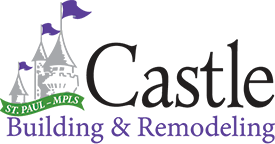What are molds?
Molds are simple fungi, usually microscopic in size, that occur naturally in large quantities. Molds are part of the natural environment. Outdoors, molds play a part in nature by breaking down dead organic matter such as fallen leaves and dead trees, but indoors, mold growth should be avoided.
How does mold affect my health?
Molds have the potential to cause health problems. Molds produce allergens (substances that can cause allergic reactions) and in some cases, potentially toxic substances (mycotoxins). Inhaling or touching mold or mold spores may cause allergic reactions in sensitive individuals.
Learn about Ways to Prevent Asthma & Allergies in Your Home here.
What can I do to avoid having mold?
According to Mold Busters of Montreal, mold spores are airborne and are everywhere, and because of their small size, there is very little that people can do about that. What people can do, however, is to make sure that the environment in their home is not a place where these spores can grow.
Mold spores need a warm, humid environment to grow into mold, so to prevent their growth, you must prevent this ideal environment in your home.
Indoor humidity is probably the biggest factor in indoor mold growth, and it is also the factor that you as the homeowner have the most control over.
Some signs that you have excess moisture in your home can include:
- musty odors
- frost and ice on cold surfaces
- fogging windows
- discoloration of building materials
- rot and decay, sweating pipes
- water leaks and dripping
- peeling, and blistering and cracking paint
How do I monitor and reduce humidity in my house?
You can get an inexpensive gauge to measure relative humidity at any hardware store. Indoor humidity should be between 30-50% during the winter.
To learn what humidity meter to buy and how to use one, check out this informative website about How to Calculate Humidity.
If you find that you have excessive humidity in your home, some simple things you can do to reduce the humidity in your home include:
- turn down or discontinue using a humidifier
- use range and bathroom exhaust fans while cooking or bathing
- cook with covered pans
- install a fresh air intake duct to bring in outside air with a low relative humidity
- vent dryers to the outside
- seal cracks in the house and in the vapor barrier
- consider installing a properly designed mechanical ventilation system
Source: Mold remediation Dallas.
If you are interested to learn more about molds, this Allergy & Air website is very helpful.

